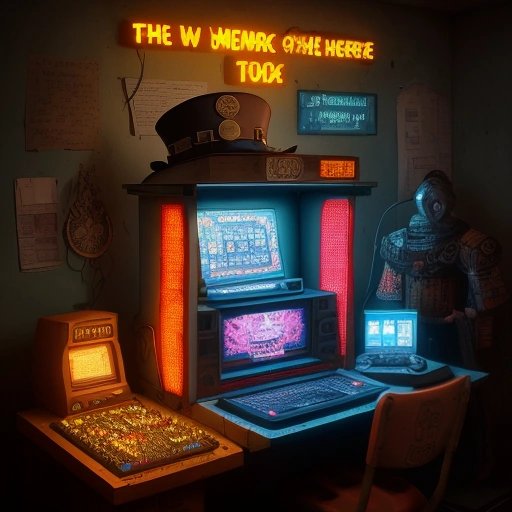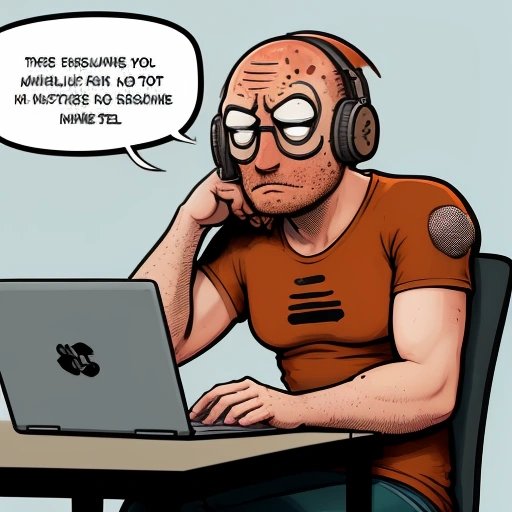Once upon a time, nestled amidst the digital bazaars and virtual alleys of the internet, there thrived a unique breed of tech enthusiasts revered as Rustlang fanatics. Boasting a prowess in memory safety without a garbage collector and unique lifetimes to prevent age-related bugs (which are unfortunately not applicable to their own lives), Rustlang fanatics formed the cream of the crop of the software world, or so they liked to believe.
And in this mythical realm, the legend of an undercover Pythonista making his tentative steps into the Rustlang territory has been handed down from generation to generation of compilers. Clad in disguise, armed with a Rust manual and his wits, our Pythonista hero, disgruntled by Python's garbage collection delays, resolved to journey into Rustland.
Much like Alice tumbling down the rabbit hole, our Pythonista found himself in a world where everything was curiously familiar but alarmingly different. The residents dressed in plaid shirts and cargo pants, sported an unhealthy pallor from staring at screens for too long, and conversed in a jargon that was as foreign as Esperanto to an English speaker.
The transition from Python, the language of elegance and simplicity, to Rust, a language that could impress even the most hardened assembly programmers, was as jarring as suddenly finding oneself on a speeding bullet train after a leisurely bicycle ride through the countryside.
However, learning Rust wasn’t as easy as picking up the lingo via Rosetta Stone. Learning to love and live Rust was about tolerating quirks like the infamous "borrow checker". The borrow checker was such a revered aspect of Rustlang life that it had its own shrine, well, at least in the digital equivalent - an entire chat room dedicated to a stick figure wearing a patrolman’s hat with the tag: “All hail the Borrow Checker!”
Each day was an onslaught of terms that made the Pythonista yearn for his previous life of list comprehensions and decorators. Yet, he held his ground, stoically persevering through the endless chatter about ownership, traits, monomorphisation, and the occasional banter about how Rust's mascot Ferris is infinitely cooler than Python's Python (to be fair, Ferris, a delightful crab wielding repaired DNA strands as weapons, is pretty cool).
What truly threatened to blow his cover were Rust's syntax conventions. Imagine the horror of having to use ‘&&’ instead of the elegant and Pythonic ‘and’! Or having to say goodbye to Python's adored simplicity in favor of curly braces and semicolons, the hallmarks of Rust's syntactic world.
And then came the encounter with lifetimes, a feature unique to Rust. While the Pythonista was familiar with the concept of living and dying, doing so in code in a garbage-collector-free land felt as disorienting as flying an airplane after years of driving a car.
Nevertheless, despite these tongue-tying terms and frenzied conventions, there was undeniable logic and reliability in Rust's design. When Rust fanatics claimed it was annoyingly fast, they were right. It wasn't just the blazing speed of Rust that impressed him, but the stringent checks that the language employed, almost akin to a resourceful parent vigilantly ensuring their child isn't playing with sharp objects.
And so, despite the numerous Rust-induced panic attacks, the Pythonista found himself reluctantly admiring the language's peculiarities and power. He was still carrying his Pythonista badge under his Rustlang poncho, but a part of him had undeniably turned rusty.
In the end, our Pythonista returned home to his Python realms, much like an explorer returning home after discovering an intense, new world. But unlike other grandiose stories of discovery and conquest, this story wasn't about a victory but about understanding. By wearing his Rust costume, he understood that programming languages, like the tech wizards who wield them, have quirks, charm, and their own trails of madness. And that embracing these diversities can grow codebases, software, and maybe even human beings.


